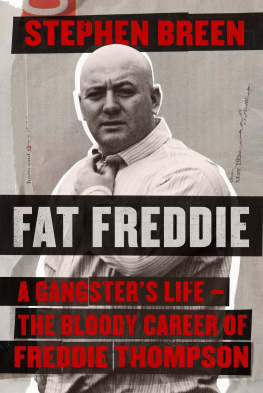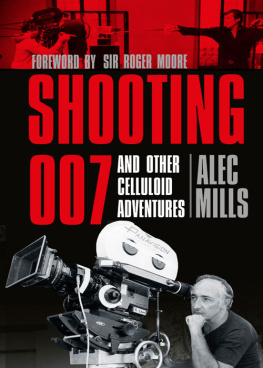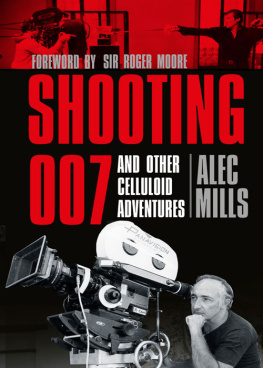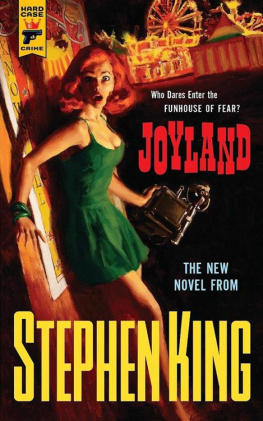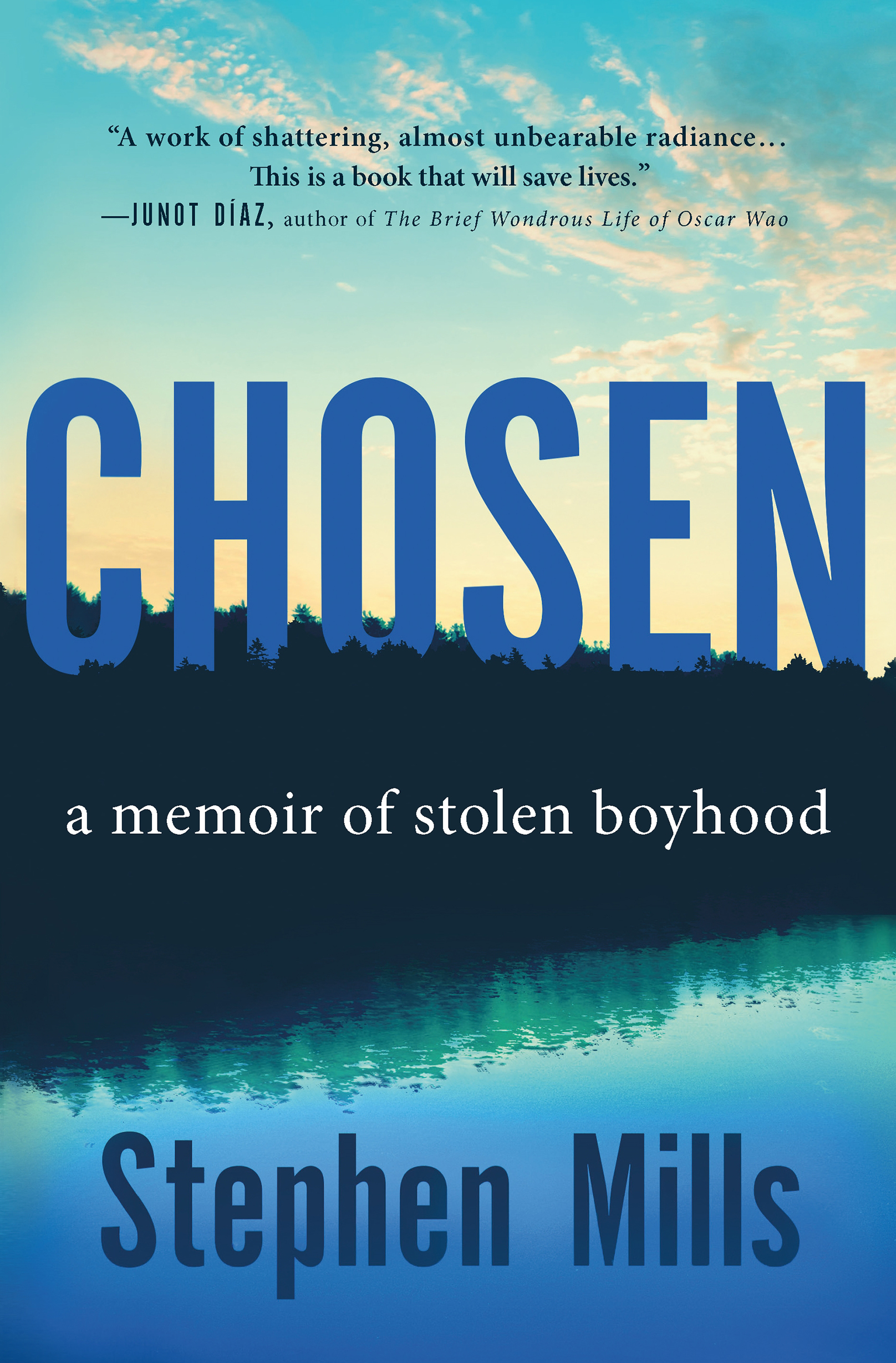Contents
Guide
Pagebreaks of the print version

The author and publisher have provided this e-book to you for your personal use only. You may not make this e-book publicly available in any way. Copyright infringement is against the law. If you believe the copy of this e-book you are reading infringes on the authors copyright, please notify the publisher at: us.macmillanusa.com/piracy.
To Susan
Truly, madly, deeply
In memory of my father, with love for my son
Im always afraid of being hurt: and to me, while I live, the force of that night will lie in the agony which broke me, and made me surrender. I wanted to put it plain in the book, and wrestled for days with my self-respect which wouldnt, hasnt, let me.
T. E. Lawrence, letter to Charlotte Shaw, March 26, 1924
The names and identifying details of some victims and witnesses in this book have been changed.
I WAS AN ONLY CHILD until the weekend came. Then our small house filled with aunts and uncles, great-aunts and great-uncles, cousins of all degrees, and my fathers Army Air Corps friendsa tribe so large and so loud I never felt alone in their presence. They came to talk at my father and help my mother. Hey, boychick, hows the old man? Steve-a-rino, siddown and tell me whats cookn. Hello, doll, give your aunt a big wet kiss.
In the summer, they gathered in the backyard beneath towering oak and maple trees, surrounding my father like a Jewish hydra with twenty heads, yakking about Jack Benny, Israel, and astronauts. They stopped gabbing and gesticulating only to consume bagels and Chock full oNuts.
My father sat at the center of their coiled embrace in a sturdy metal wheelchair, elbows resting on padded blue armrests, hands folded stiffly across his stomach. His two legs listed to the left, as if stuck to the frame. The white short-sleeve shirt he wore was newly ironed, his thinning brown hair carefully trimmed by the Italian barber who came to our house every month to take care of him and me. My fathers face was smooth on the weekend. My mother shaved him on Friday mornings. She pretended to shave my face, too.
I could always find my fatherhe never moved. My uncles played ball with me and carried me on their shoulders, but my father was for hugging. On summer days, I liked to climb up on his lap and sit at the center of the family circle. I slumped against his chest, his arms around me.
Every few minutes hed let loose a kind of strangled cackle, his distinctive laugh, because the men in this circle were all kibitzers. They lived to tell jokes, to surprise with the punch line. Uncle Harold, who taught me to sing Broadway show tunes and dance around the Maypole. Uncle Milt, who sold girdles and made me memorize the names of philosophers to study when I grew up: Ponty, Husserl, and Arendt. Great-uncle Jorge, who smoked a big smelly cigar, composed music, and built pianos.
I didnt understand their jokes, but my father loved them. His bony legs quaked beneath my thighs. His right hand twitched against my ribs. When he laughed, his large nose, crooked grin, and tortoise-shell sunglasses all scrunched up together.
The women of the tribe were arrayed opposite the men. Aunt Delle with jet-black hair, smoking a Parliament that shed set aside in the ashtray, kissed with red lipstick. Aunt Fran, her eyebrows heavily penciled, clutching a shiny gold cigarette case and pitching her hundred-decibel voice. Great-aunt Jean, whose impossibly large lips were painted like apples or oranges.
They flanked my mother, who relaxed in an aluminum-frame lawn chair. She wore navy blue slacks and a plaid shirt. Enormous round sunglasses shaded her eyes from the high noon sun. Her slight build and girlish bangs made her seem younger than her thirty-four years. The daughter of a learned Orthodox Jew, she was often mistaken for Irish, with her fair complexion, sandy hair, and hazel eyes.
But here, among friends and sisters-in-law, there could be no doubt of her origins. She had been an only child. Her parents, immigrants from Eastern Europe, had long since died. When she married Seymour Millsknown by all as Sishe was adopted by his tight-knit clan.
On Saturday nights, they set up camp in our house. Sleeping quarters materialized out of thin air. Fold-up cots unfolded. A sofa and its cushions blossomed into a bed for two or three. Army sleeping bags proliferated. I had too much fun to sleep.
I KNEW MY father was different from other fathers. They didnt need a wheelchair or visits from nurses. They didnt need to be fed by their wives from a spoon on a yellow tray. Its how he came back from the war, my mother said. That part confused me. I knew he had something called MS. Those two letters always hung in the air, like the cigarette smoke that arrived with my aunts and uncles. World War II and MS were connected but I didnt know how.
I thought my father was still in the army, because the army took care of us. In the early 1950s, they had built my parents a custom ranch house in Wantagh on Long Island. It had ramps in front and back and extra-wide doorways, so my father could roll, or be rolled, anywhere in the house. All the kids on my street wanted to run up and down our ramps. I was almost as popular as Tommy, whose father was a Mister Softee man and parked his ice-cream truck in their driveway.
Our car was different, too. The army had outfitted a big blue Plymouth sedan with hand levers so my father could operate the gas and brake pedals without using his feet. That was before I was born. I never saw him drive. When my mother took over the driving, they removed the back seat so my father could fit there in his wheelchair when we went to visit our relatives.
On shopping trips, I sat in the front with my mother, pretending to be older, straining to see over the dashboard. Every Friday we drove almost an hour to Fort Totten, an army PX in Queens near the Whitestone Bridge. She loved the low prices for army families like ours. I was more interested in the soldiers with holstered guns who guarded the entrance. When we stopped at the gate, they would look in the car and ask my mother about the hand levers. She explained how they worked. The soldiers pointed and nodded, impressed.
On the nights when my father had to go to the hospital, my mother would wake me, kneel by my bed, and tell me which aunt or friend would be staying over till morning. Sometimes they stayed for days. I had nightmares about sirens. Id wake up panicked, sure that the siren Id heard was real. Sometimes it was but usually it wasnt. Id clutch a small stuffed leopard to my chest and listen hard.
One night, there were strange sounds coming from my parents bedroom. I grabbed my leopard and padded across the hallway to their closed door. When I opened it, I was hit with a blast of warm, menthol vapor that poured out of a round, green glass contraption sitting on the dresser. The machine was always running, magically producing steam like the morning fog that hung above the pond at Forest Lake Elementary School.
I stood in the doorway for a moment, searching for my parents through the mist before moving closer. My father was sitting up in bed, his skinny body wrapped inside a white harness. My mother stood next to him, pushing up and down on a long metal lever that operated a big hoist.
Each time she pushed down, my father rose a few more inches above the bed. She was strong. When he was clear of the bed, she grabbed the harness with both hands and swung him over to the wheelchair. Then she worked the lever again, lowering him into it. His legs fell to one side as they always did, and his head hung down.


